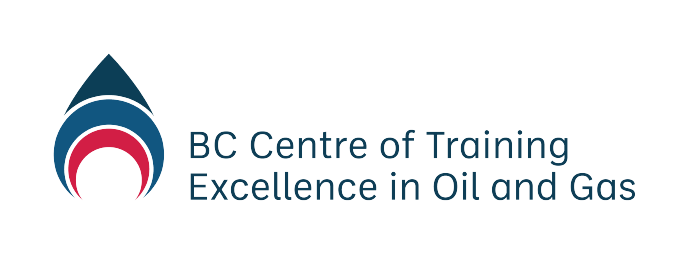-
Module 2.0 How to be Successful in this Course
-
Module 2.1 Introduction to Natural Gas
-
Module 2.2 The Natural Gas Industry in British Columbia
- Overview
- Learning Outcomes
- Natural Gas Science – The Simple Version
- Natural Gas Science – Chemistry
- Natural Gas Science – Physics
- Natural Gas Science – Units of Measurement
- Natural Gas Science – Geology
- Natural Gas Resources and Uses
- Oversight of the Natural Gas Industry
- Understanding Land Rights and Natural Gas
- Energy and the Future
-
Module 2.3 Upstream – Well Site Selection, Preparation and Drilling, Completion, Production, Water Recycling, and Reclamation
- Learning Outcomes
- The Upstream Sector – Extraction and Processing
- The Upstream Sector – Exploration and Site Selection
- The Upstream Sector – Preparation and Drilling
- The Upstream Sector – Completion
- The Upstream Sector – Production
- The Upstream Sector – Water Recycling
- The Upstream Sector – Reclamation
- Upstream Companies and Jobs in British Columbia – Companies
- Upstream Companies and Jobs in British Columbia – Industry Associations
- Upstream Companies and Jobs in British Columbia – Professional Associations
- New Vocabulary
-
Module 2.4 Midstream – Transportation, Processing, Refining
- Learning Outcomes
- The Midstream Sector
- The Midstream Sector – Processing Natural Gas
- The Midstream Sector – Liquefied Natural Gas
- The Midstream Sector – An Emerging Industry
- The Midstream Sector – Processing LNG
- The Midstream Sector – Proposed LNG Projects in British Columbia
- Transportation
- Midstream Companies and Jobs in British Columbia
-
Module 2.5 Downstream – Refining and Markets
-
Module 2.6 Health and Wellness in the Natural Gas Industry
-
Module 2.7 Safety
-
Module 2.8 Terminology and Communication
-
Module 2.9 Jobs and Careers
- Learning Outcomes
- Industry Outlook
- Technology is Changing Workforce and Skills
- Employment in the Natural Gas Industry
- Employment in the Natural Gas Industry – Types of Employment
- Employment in the Natural Gas Industry – Range of Jobs
- Employment in the Natural Gas Industry – High Demand Jobs and Occupations
- Occupational Education and Training
-
Module 3.0 How to be a Valued Employee
-
Module 3.1 Identifying Interests and Skills
-
Module 3.2 Looking for Employment in Natural Gas
-
Module 3.3 Applying for Employment in Natural Gas
Being able to work as part of a team is essential to your success in the workplace no matter what industry you work in.
Working well with others, whether they are your peers or supervisors helps the whole team complete jobs efficiently while
creating an enjoyable environment to be in. A company that emphasizes good teamwork skills is typically a healthy and high-functioning workplace.
Haven’t worked on a team before? A workplace team is just another type of community that has members. In communities,
there are shared goals and individuals each do their part to achieve the goals. Effective teams value each member for their
contribution to the outcome achieved by the team. Teams succeed and lose together.
Teamwork
includes a set of skills:
- Communication – a team only functions effectively with communication (see how this word keeps coming up!).
- Responsibility – everyone on the team is responsible for their own part of the work of the team.
- Honesty – being honest and transparent in a team setting means saying when you can’t meet a deadline or owning up to missing a detail. Without honesty it’s difficult for team members to trust each other.
- Honesty – being honest and transparent in a team setting means saying when you can’t meet a deadline or owning up to missing a detail. Without honesty it’s difficult for team members to trust each other.
- Empathy – having empathy means taking time to understand how someone else feels in a situation.
- Collaboration – working together, making the most of the talents and skills of each person on the team, building on and improving each-other’s ideas through support, not criticism.
- Collaboration – working together, making the most of the talents and skills of each person on the team, building on and improving each-other’s ideas through support, not criticism.
Learning Activity 2: Practicing Teamwork
This is a fun teamwork exercise that that will get you to use all the skills included in teamwork
.
Instructions
- Sit or stand in a circle facing each other.
- Count from 1 to 20 in ten minutes using the following rules:
- Start at number 1
- Each person says one number, speaking randomly one at a time e.g. don’t go clockwise or counter-clockwise—mix it up.
- Each person in the group must speak at least once before saying another number.
- If two people speak at the same time, start again from number 1.
- When starting over, individuals cannot say a number they have said before.
- Repeat the exercise as many times as needed to get to 20 in the ten minutes. You may not be able to get to 20, and that is ok.
- If the group gets to 20 in less than ten minutes, turn around so everyone in the circle is now facing out, away from each other and start counting from 1 to 20 again.
- Discuss what is easy or difficult about this exercise and how the words: communication, responsibility, empathy, collaboration, and awareness are necessary to achieve the task.
